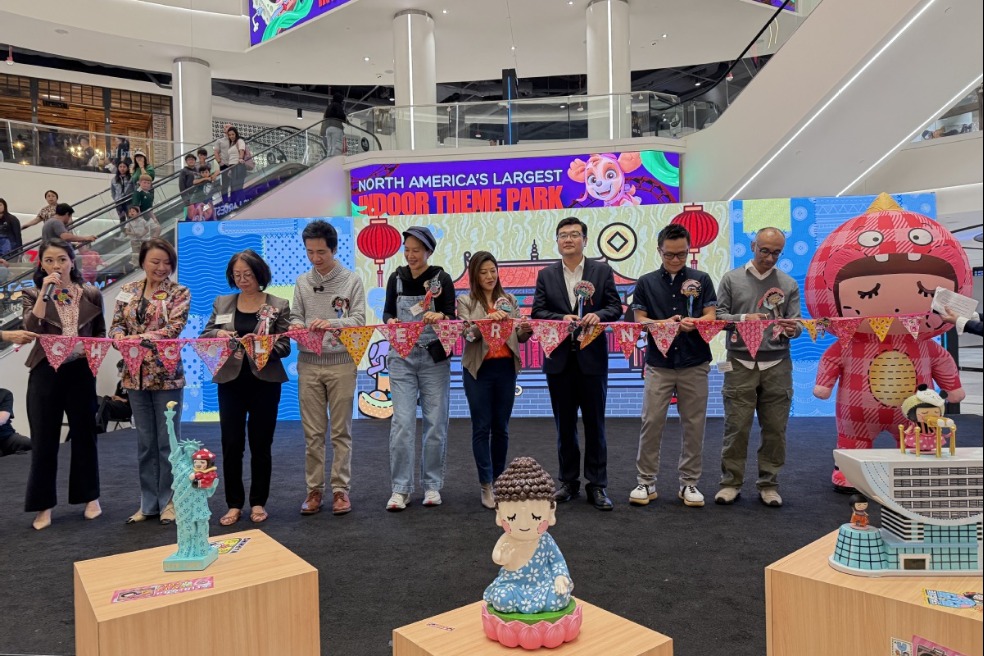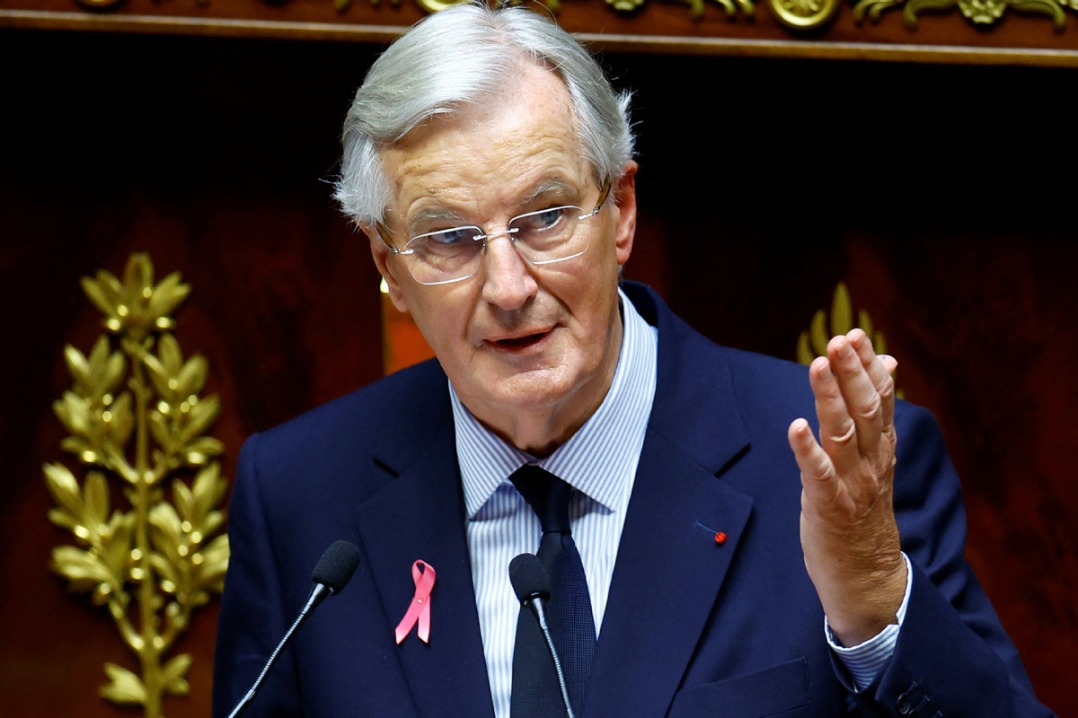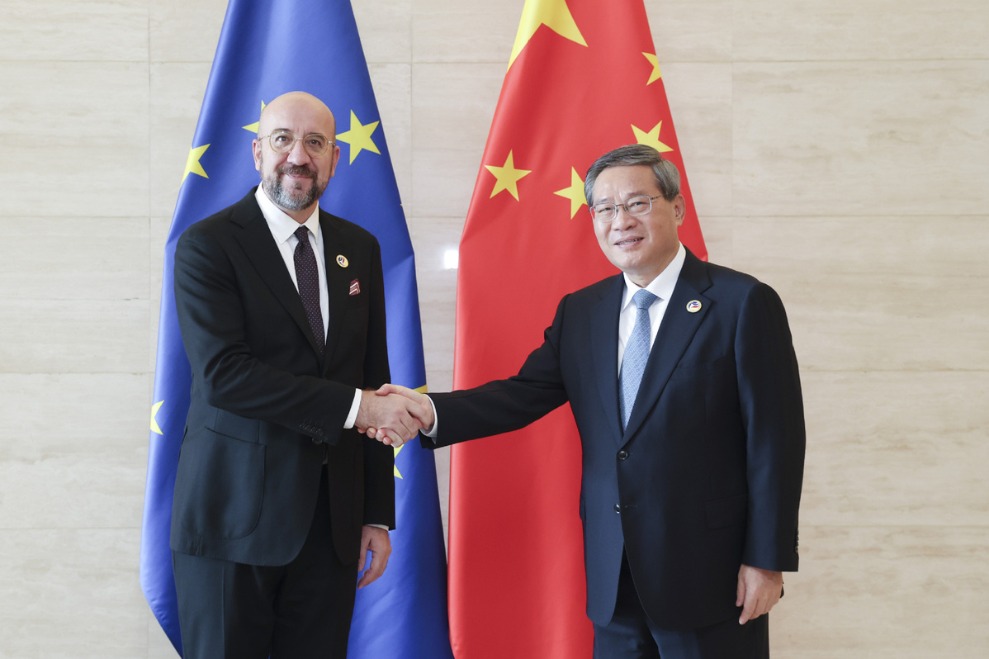China-ASEAN forum calls for more exchanges






Cultural exchanges and dialogue are key to expanding economic and business cooperation between China and Southeast Asian countries, according to participants in a regional forum held in Jakarta.
Fu Fengshan, the deputy chief of the Chinese mission to ASEAN, hosted the China-ASEAN Media and Think Tank Salon in the Indonesian capital on Oct 26.
Other Chinese officials alongside journalists and researchers from China and ASEAN member countries participated in the forum. The 10 members of the Association of Southeast Asian Nations (ASEAN) are Brunei, Cambodia, Indonesia, Laos, Malaysia, Myanmar, the Philippines, Singapore, Thailand, and Vietnam.
Fu presented China's white paper titled "Building a Global Community of Shared Future". He noted that this year marks the 10th anniversary of Chinese President Xi Jinping's proposal to build a closer China-ASEAN community with a shared future.
Fu said that "as good friends, good neighbors, and good partners", China and ASEAN share the same visions, have closely intertwined interests, and are "natural partners" in building a community of shared future.
"East Asia today has generally maintained peace and stability and has become a pacesetter for development and a promising land for cooperation," Fu said, adding that this is the result of joint efforts between China and ASEAN.
He cited the China-proposed Belt and Road Initiative and how this aligns with ASEAN's development strategies.
China-ASEAN cooperation has also increased connectivity as shown in the construction of the China-Laos Railway, the Phnom Penh-Sihanoukville Expressway in Cambodia, and the Jakarta-Bandung High-Speed Railway in Indonesia.
China is also ASEAN's largest trading partner. Fu said that as of July this year, the cumulative two-way investment amounted to more than $380 billion.
China and ASEAN have also promoted regional economic integration, as they are both members of the Regional Comprehensive Economic Partnership, the world's largest free trade agreement.
Fu said that both sides must also jointly respond to common challenges including geopolitical tension, sluggish global economic recovery, and climate change.
He said China "firmly supports" ASEAN solidarity and centrality, community building, and its focus on economic development and East Asian cooperation.
China and ASEAN countries are emerging economies and share the "same goal of working together to build an international order that is more favorable to us and more just and reasonable", Fu added.
Muhammad Habib Abiyan Dzakwan, a researcher from the Jakarta-based Center for Strategic and International Studies, said the white paper mentioned removing all barriers to cultural exchanges.
He said that removing barriers "must apply up to the last mile of our population", referring to the hardest-to-reach members of society.
Habib said Chinese workers working in Indonesia should be encouraged to learn the Indonesian language so that they can socialize more with their colleagues and integrate with the local community.
He said Indonesian workers in China and Chinese workers in other ASEAN countries should learn the local language.
"We need to enable affordable access to learn our respective languages to all parts of our population," Habib said.
Iwan Santosa, a senior journalist at the Indonesian newspaper Kompas, said that Chinese workers and local employees need to understand each other.
In Indonesia, thousands of Chinese workers are currently working on mining projects in the provinces of Sulawesi and Maluku. Santosa said that mining companies need to address any concerns of the local community.
Bryant Gozali, CEO of Bolong Media Indonesia, a Jakarta-based multimedia company, said the media plays a key role in bolstering cultural exchanges between China and ASEAN.
"It's not just about communication. It's about building connections, fostering understanding, and creating a shared future," he said.
Fu, from China's mission to ASEAN, said competition in development between countries is a normal thing.
"Of course, we can compete but in a healthy way," he said, noting that inviting outside parties to support one's ability to compete is not acceptable.
Leonardus Jegho is a freelance journalist for China Daily.
Contact the writers at [email protected]




























